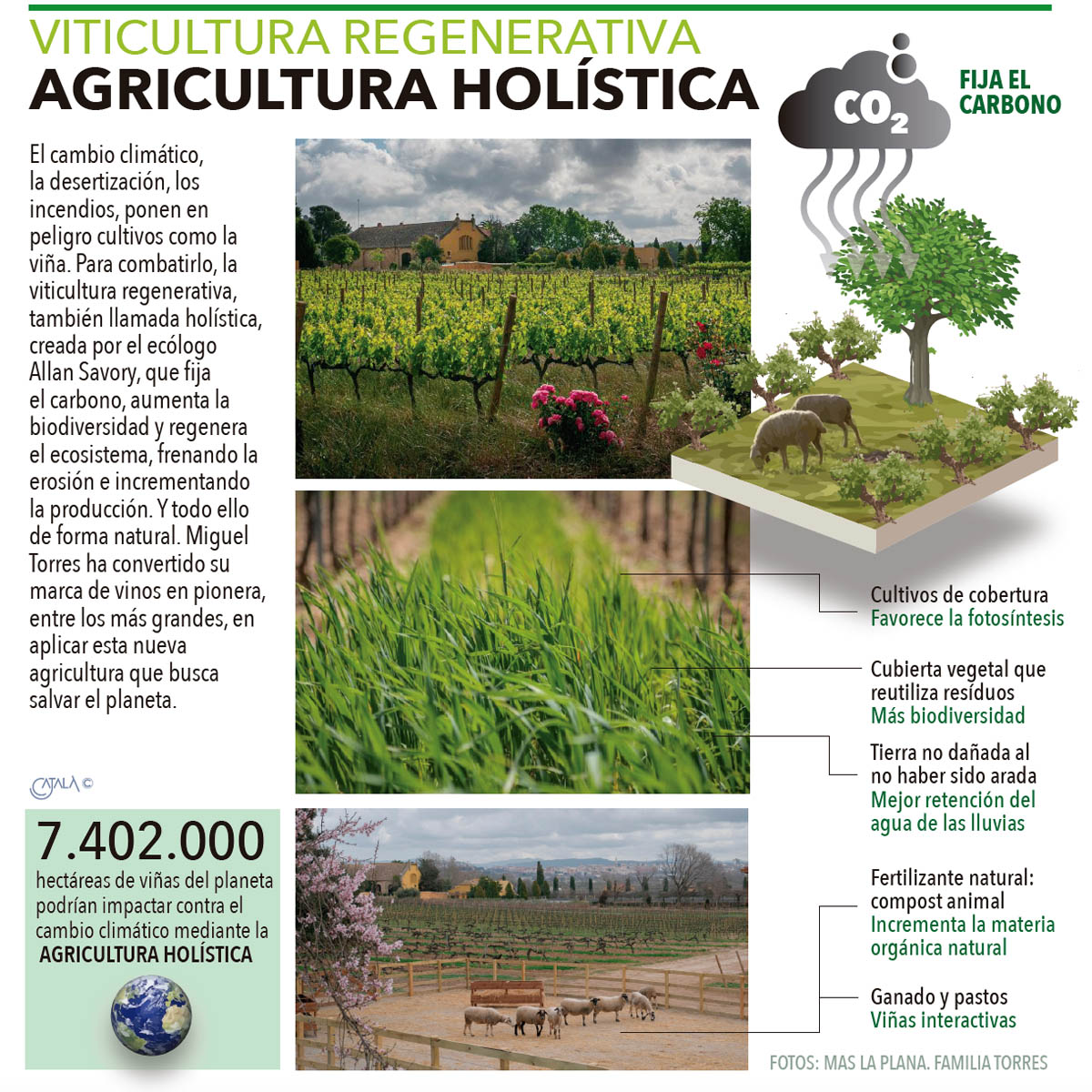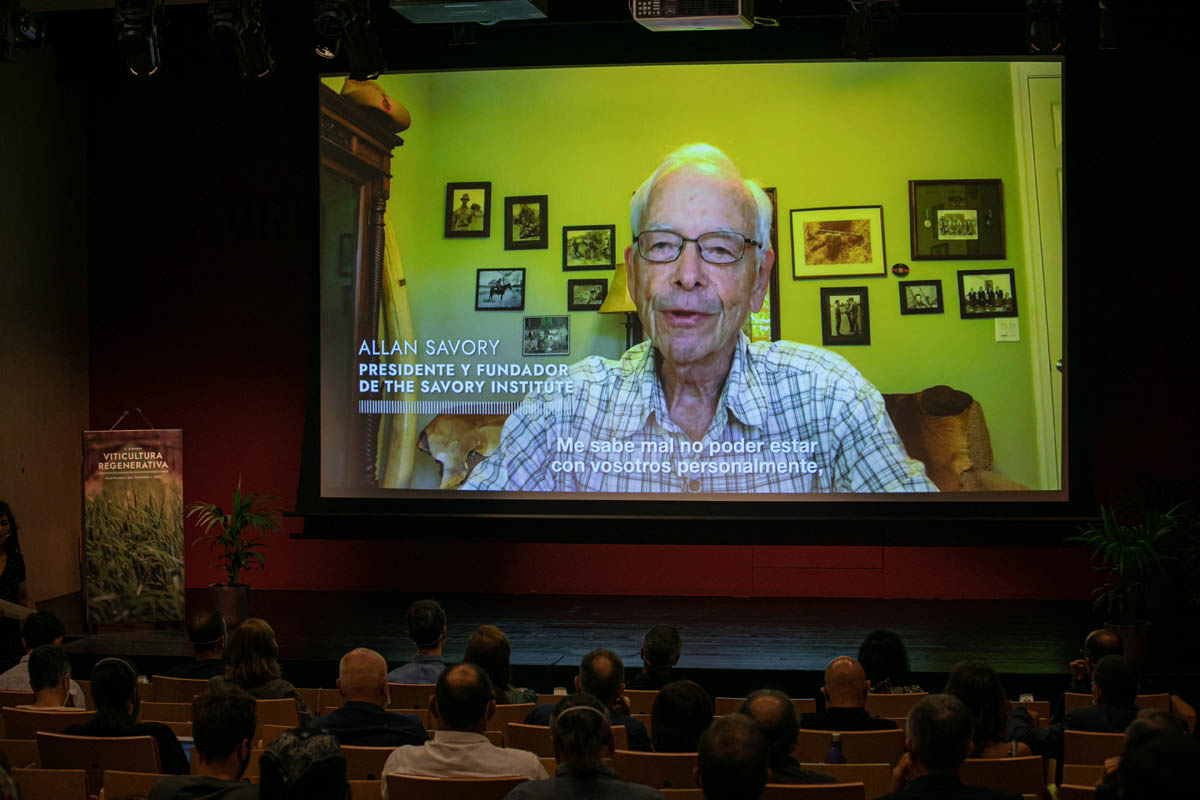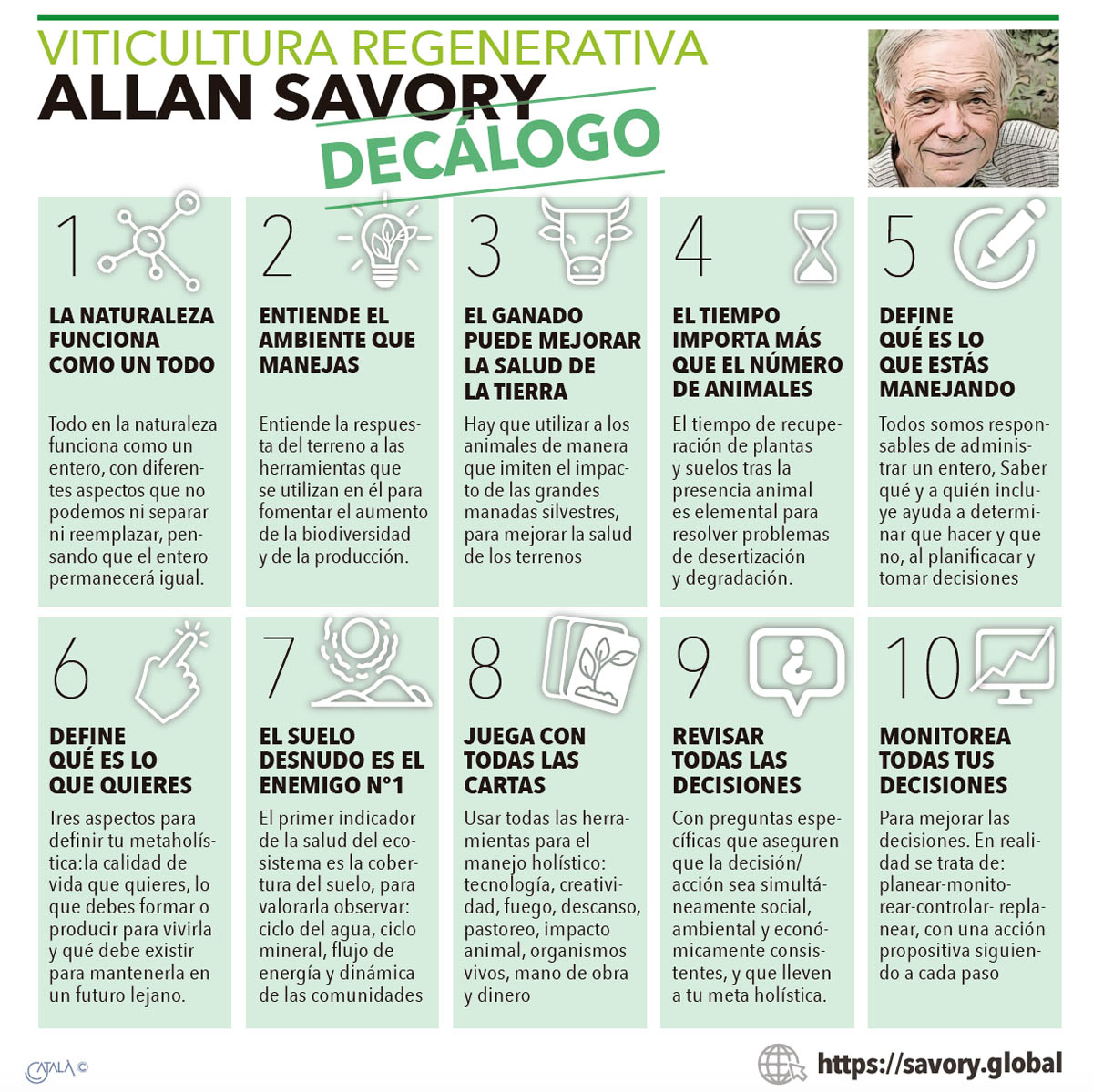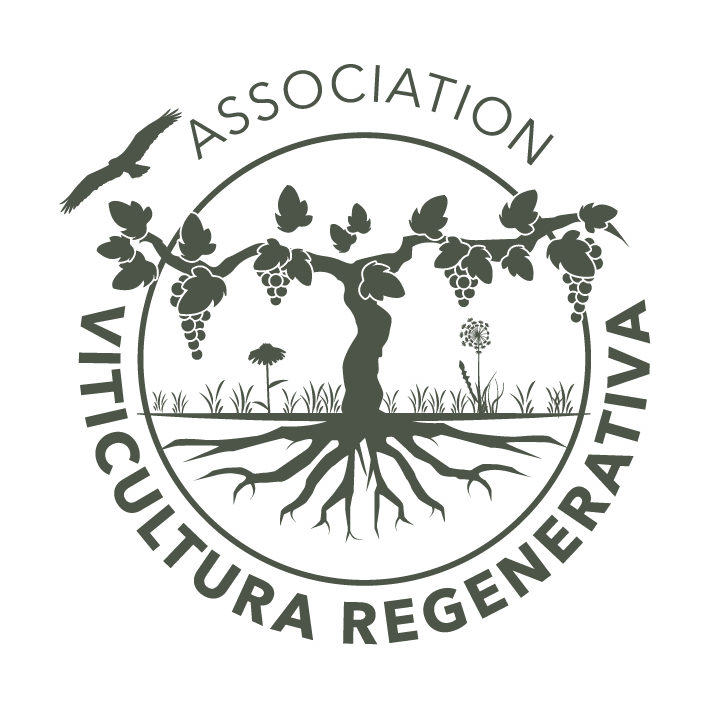Allan Savory. “I can't give you any best management practice except to manage holistically.”
The ecologist Allan Savory, one of the minds behind holistic management and the president and founder of the Savory Institute, participated in the 1st Regenerative Viticulture Conference held in Vilafranca del Penedès this past June. Below you'll find a summary of his talk.

Thousands of years of agricultural failings show that it is an agent of desertification, wildfires, and climate change, much more so than fossil fuels or livestock, the usual culprits. However, in recent decades, many of us scientists have come to consider humans and the way we manage things as the true culprits. There are many things that we don’t manage but rather produce or make. If we stop producing or making them, they stop. These things do not self-organize. By contrast, the things we manage, they do self-organize and have continuity.
But in reality we only manage three things: the economy, human beings, and nature, and these self-organized things are the real causes of climate change. In 1983, a significant number of scientists came to an agreement on two contradictory aspects with regard to management: as human beings, we all have the same way of making final decisions; and we, as humans, believed that we could manage nature using things like technology and fire.
As human beings, we can manage on two levels: management on a human scale, in other words, the things we decide we want to do, like ride a bicycle or the decisions we make on our farms; and management on a large scale, for example, nature. The latter goes beyond human scale and needs to be addressed on an institutional level. What we can manage ourselves is on a human scale, and this needs to be done holistically. We need to learn to make decisions, and the best way to learn is by doing. Holistic management is 100% practical, so the best way to learn is by putting it into practice.

Ohio State University did a study on the first farmers who Savory trained in holistic management when he arrived in the US. The results show that the families who adopted this type of management averaged a 300% increase in profits at a time when over 600,000 farming families went bankrupt.
In short, it isn't about what we produce, or how we produce it, but about managing the complexity of human beings, nature, and the economy, and when it comes to managing these things, the only sound way of doing so is holistically.

